
Women’s History Month offers the opportunity to celebrate the many ways that women leaders have contributed to shaping our world. This month, WLP invites you to explore and share the stories of activists from around across the globe who have dedicated their lives to advancing gender equality and safeguarding human rights.
This blog series introduces you to a selection of the gender equality activists and scholars featured in WLP’s oral history archives. Their experiences provide insights into feminist movements from around the world as well as learnings and inspiration for the next generations of future leaders. Stay tuned for parts 2 and 3, coming on March 18 and 28.

Mahnaz Afkhami (Iran/USA)
Mahnaz Afkhami is Founder, President Emerita, and Special Advisor of Women’s Learning Partnership and former Minister for Women’s Affairs in Iran. In her oral history Afkhami recounts her journey as a feminist leader inside Iran and in exile in the United States. She describes her global collaborations with other feminist activists to build a sustained women’s rights movement, including how she founded the Foundation for Iranian Studies (FIS) and Women’s Learning Partnership (WLP).
Listen to the full oral history here.
"It is a feeling that I have had time and again with groups of women, this spontaneous and really, heartfelt celebration of something that we have done together. I cannot but believe that this was not because I had been appointed to a post, it was because we have broken a barrier. It was so internalized and so owned, that I was extremely happy about it. Because it just proved once again that they all have had a piece of it, they have all had a role in it, that they have been involved in it, that it’s not something for a very few, it’s, a lot of people are involved in all of this, and it makes such a difference in their lives." - Mahnaz Afkahmi on support of being appointed minister
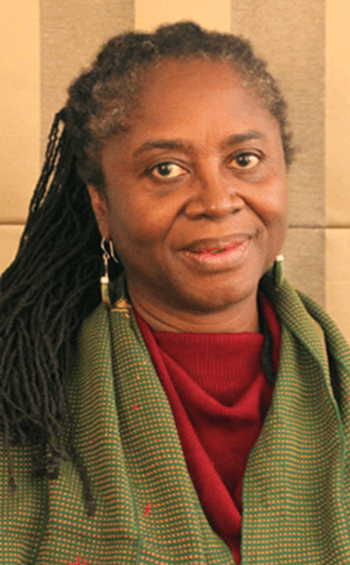
Abena Busia (Ghana/USA)
Abena Busia is an author, poet, and diplomat. She serves as Ghana’s Ambassador to Brazil and is the former Chair of the Department of Gender Studies at Rutgers University. In her oral history Busia describes living much of her childhood in exile and her growth as a poet and feminist. She discusses her life working at the intersection of art, academia, and activism on topics including gender equality, the historical and cultural legacy of African women, colonial discourse and African diaspora literature.
Listen to the full oral history here.
“I used to think up until that point, that Poet with a capital ‘P’ was a profession like doctors and lawyers, except for the fact that only dead, white men were only ever poets. And to suddenly realize that, no, they were once living, and they were human, and they were writing poetry out of what was going on in their lives…and to realize that great poetry comes out of a connectedness to the world in which you’re living.” - Abena Busia on impact of childhood teacher
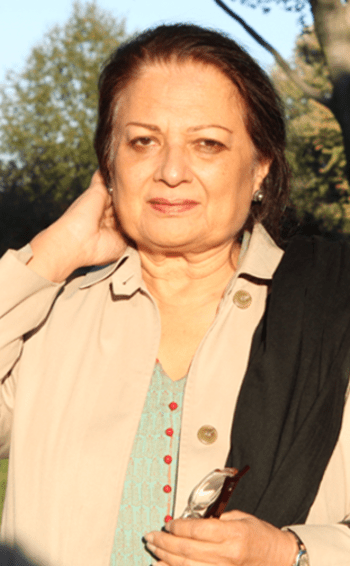
Masuma Hasan (Pakistan)
Masuma Hasan is a diplomat and serves as a member of the Board Governors of Aurat Foundation and Chairperson of The Pakistan Institute of International Affairs. In 2014, she was named "goodwill envoy" for her contribution to the initiatives of World NGO Day of the Council of the Baltic Sea States. In her oral history, Hasan describes her career as one of the only women in a sea of men working in diplomacy in the UK, USA, and Austria among others. She speaks about persevering in her career amidst cultural and political oppression in a rapidly changing Pakistan.

Afaf Mahfouz (Egypt/USA)
In Memoriam (1938-2003)
Afaf Mahfouz was a long-time advocate for human rights around the world. Trained in law, political science, and psychoanalysis, she was President (1997-2000) of the Conference of the Non-Governmental Organizations in Consultative Relationship with the United Nations (CoNGO). In her oral history, she speaks on her experience in France and the USA working as a psychoanalyst and legal expert, and her return to Egypt where she worked to protect women’s civil society amidst Egypt’s growing ultra-religious majority.
Listen to the full oral history here.

Mma Odi (Nigeria)
Mma Odi is the former Executive Director of BAOBAB for Women’s Human Rights and currently serves as the Secretary General for the Alliance for Credible Elections (ACE-Nigeria). Odi speaks on her career as a journalist and civil society leader, working on bridging the gap between enacting and enforcing gender-justice laws, combatting gender-based violence, and engaging men and boys in the women’s rights movement.
Listen to the full oral history here.

Jacqueline Pitanguy (Brazil)
Jacqueline Pitanguy is a sociologist, activist, and the Founder and Executive Director of Cidadania, Estudo, Pesquisa, Informação e Ação (CEPIA). She is also the former President of the National Council for Women’s Rights and held a cabinet position in the Brazilian government. In her oral history, Pitanguay discusses her experience organizing with civil society for women’s rights in Brazil’s post-dictatorship government. She expands on issues such as labor rights, domestic violence, and feminist legal reform.
Listen to the full oral history here.
“In 1975 the UN declared that it was the International Women’s Year…And we did a week of debates on the women’s situation in Brazil, labor force, political power, education…it was a fantastic week because there were thousands of other women that were also interested in their place in the world, and from there a number of groups, which were called colectivos, or informal groups started to bloom and also the first feminist organization in the country was created.” - Jacqueline Pitanguy on International Women's Year, 1975
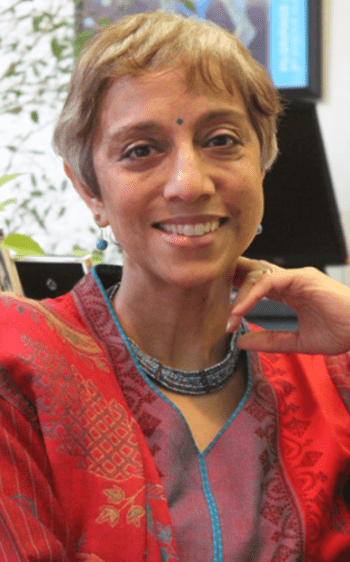
Kavita Ramdas (India/USA)
Kavita Ramdas is the former CEO of the Global Fund for Women, and former Senior Advisor to the Ford Foundation’s president. In her oral history Ramdas speaks about her work in the women’s funding movement both in the USA and globally. She speaks about the interplay between money, philanthropy, and feminism, and how the model she helped develop at Global Fund for Women was implemented internationally. She discusses her work with political figures and grassroots organizers, as well as the intersectionality of class, race, and sexuality in her work.
Listen to the full oral history here.
“It was a really transformative experience…just the power of all these women together in one place and how we were all helping each other and how we were all supporting one another, and the kinds of people who I met, and the inspiration and the sense of, just the female energy and thought.” - Kavita Ramdas on time at 1995 Beijing Conference
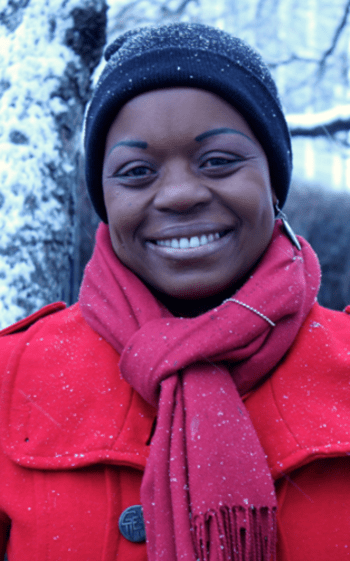
Maria da Graça Samo (Mozambique)
Maria da Graça Samo is a global women’s rights activist who has served as the international coordinator World March of Women (WMW) since 2013, and is the former Executive Director of Fórum Mulher. In her oral history she discusses her activism for women’s rights in Lusophone and southern African countries from an anti-capitalist and anti-colonialist perspective. She speaks on issues including domestic violence, poverty reduction, and public health.
Listen to the full oral history here.
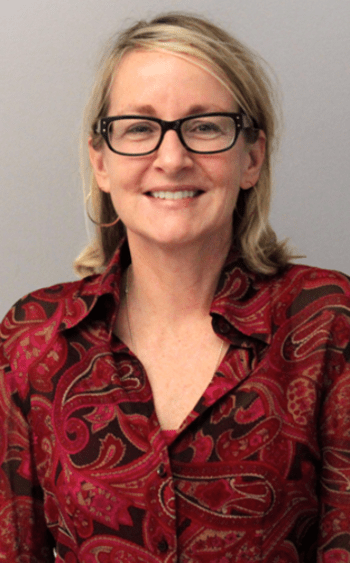
Lisa VeneKlasen (USA)
Lisa VeneKlasen is an activist, educator, strategist and organization-builder. She is the founder and former Executive Director of Just Associates (JASS). In her oral history she describes her personal journey into intersectional feminism after growing up in a conservative household. She reflects on her global career working on feminist movement building that led her to found JASS and speaks on issues including land rights, reproductive rights, and movement building amidst a changing donor landscape.
Listen to the full oral history here.
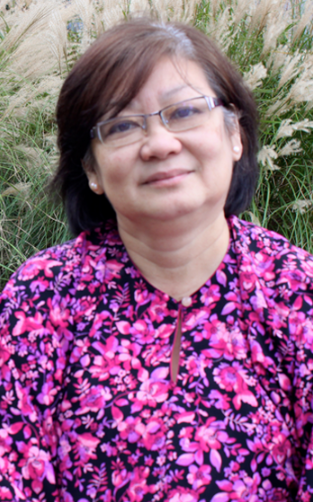
Siew Peng (Betty) Yeoh (Malaysia)
Siew Peng (Betty) Yeoh is the Projects Director of All Women’s Action Society (AWAM), and was previously the Secretary of the Women’s Section of the Malaysian Trade Union Congress. In her oral history she discusses her career working on issues including violence against women, religious tensions, and dismantling the patriarchal structure of Malaysian society.
Listen to the full oral history here.
“When I was around 20 something I moved out of my house with a very good excuse because I was in the Trade Union, and I was the Secretary of the Women’s Committee…so I packed all my stuff in one mini car and moved away. And I never moved back home, you know, that became my key to freedom and learn to be independent, learn to survive on my own, and I think I’m doing quite well.” - Siew Peng (Betty) Yeoh on moving away from home
Related Content
Voices from the Feminist Movement: Exploring Women's Oral Histories for Women's History Month (Part Three)
In the month of March people around the world celebrate the many ways that women leaders have contributed to shaping our world. This women’s history month we invite you to explore and share the stories of activists who have dedicated their lives to advancing the rights of women and girls and safeguarding human rights.
Voices from the Feminist Movement: Exploring Women's Oral Histories for Women's History Month (Part Two)
In the month of March people around the world celebrate the many ways that women leaders have contributed to shaping our world. This women’s history month we invite you to explore and share the stories of activists who have dedicated their lives to advancing the rights of women and girls and safeguarding human rights.